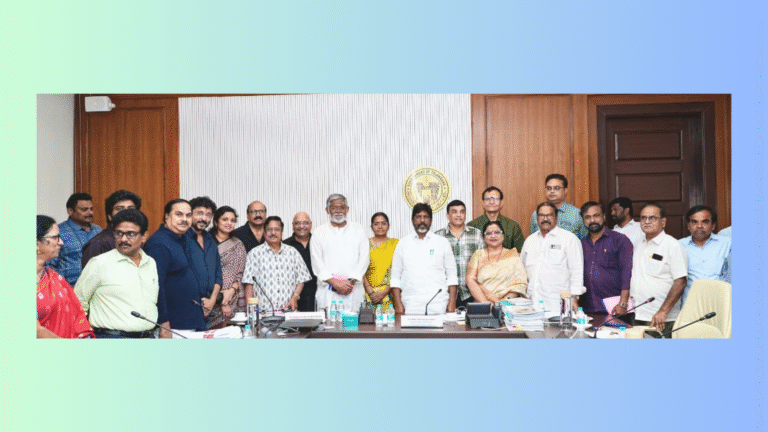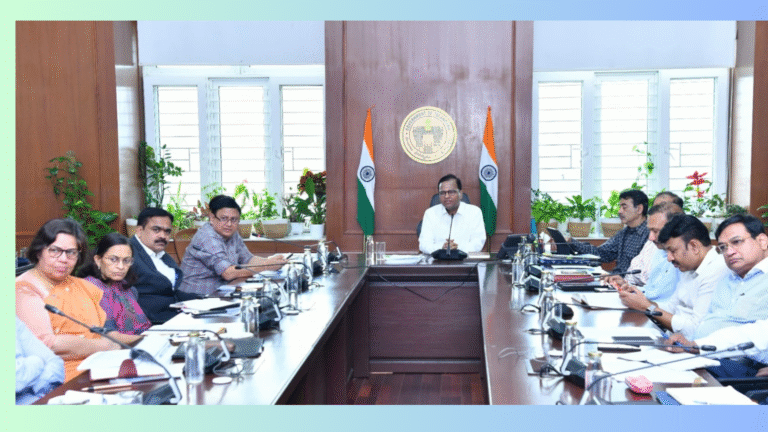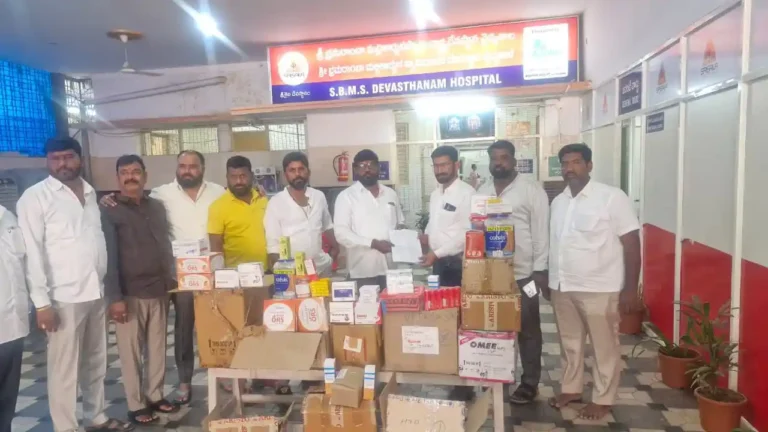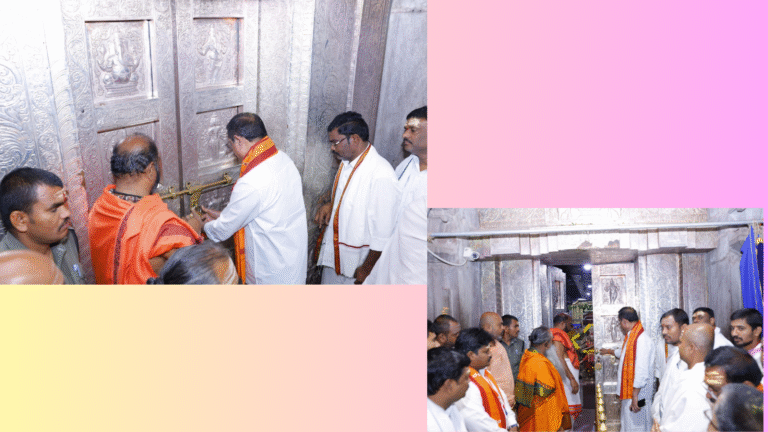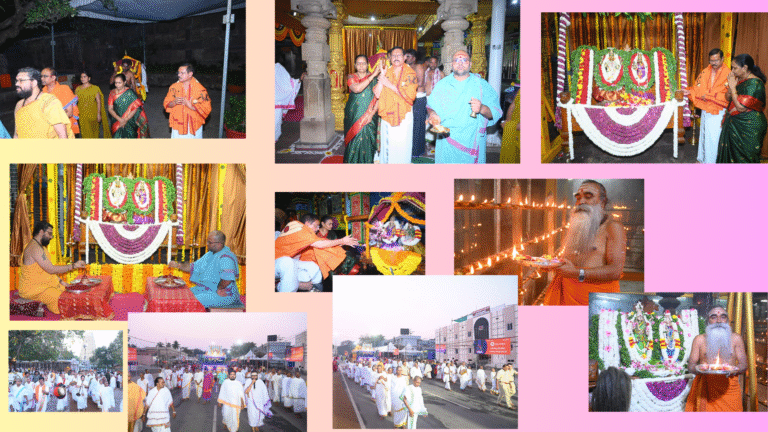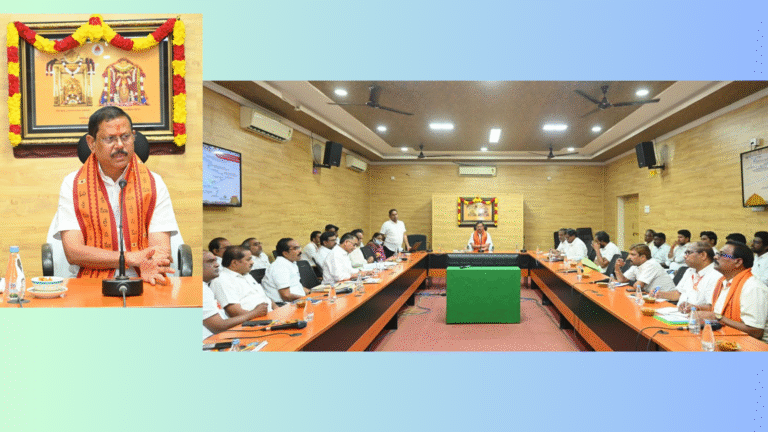Two day ‘Regional Editors Conference’ begins today
About 13,81,148 Biometric Identity Cards to Fishermen distributed
India to host Asian Ministerial Conference for Disaster Risk Reduction
A two day ‘Regional Editors Conference’ being organised by Press Information Bureau started in Chennai today. During the Conference, Shri R Bargotra, IG, Commander, Indian Coast Guard and Shri S. P. Selvan, DIG, South Zone (NDRF) briefed about the coastal security and Disaster Management respectively.
The key points highlighted during the Conference are as follows:
Coastal Security:
A comprehensive and integrated Coastal Security Scheme (CSS) was formulated with the objective of strengthening infrastructure of Marine Police Force of all coastal States/UTs for patrolling and surveillance of coastal areas, particularly shallow areas close to the coast.
Phase-I of the CSS was implemented in nine coastal States and four coastal Union Territories to strengthen their infrastructure for coastal policing, during the period from 2005-2011 with an outlay of Rs.646 crore, which provided 73 coastal police stations (CPS), 97 check posts, 58 outposts and 30 operational barracks, 204 boats/vessels, 153 jeeps and 312 motorcycles.
The Phase-II of the CSS has been sanctioned with an outlay of Rs.1579.91 crore from 2011-16, which has the provision of 131 CPSs, 60 jetties, 131 four wheelers and 242 two wheelers.
Out of the 131 sanctioned CPSs, 109 CPSs have been operationalized and 85 have been constructed. 127 Four Wheelers and 234 Two Wheelers have been procured. 58 sites have been identified out of the sanctioned 60 jetties, out of which 22 jetties have been constructed/made operational.
Other Steps taken for Coastal Security:
Enhancement in Institutional set up in Coastal States/UTs to review coastal security up to State and District Level: Coastal Security is periodically reviewed by the ‘National Committee on Strengthening Maritime and Coastal Security against threats from the Sea’ and ‘Steering Committee for Review of Coastal Security’ under the Chairmanship of Cabinet Secretary and Secretary (Border Management), Ministry of Home Affairs respectively. Further Coastal Security Committee at State level and Coastal District level under Chairmanship of Chief Secretary and District Magistrate respectively has been setup.
Creation of Central Marine Police Force (CMPF): Ministry of Home Affairs is exploring the raising of the proposed Central Marine Police Force (CMPF).
Colour Coding of Vessels with the objective to help tracking vessels crossing IMBL and while entering in safety zone around Single Point Moorings (SPMs) and also to identify about the states to which it belongs to;
Coastal mapping of putting information on the map which includes vital details and location of CPSs, local Police Stations, intelligence setup, fish landing points, fishing villages, Ports, Customs Check Posts, Hospital, Railway Stations, Bus Station, Bomb disposal facilities etc;
Standard operating Procedure (SOP) has been issued for Coastal Police Station. Guidelines on Security of Non-major/minor ports have been circulated amongst the concerned stake-holders.
Security guideline for 1382 Islands has been issued.
Notification of ten Police Stations to deal with the crimes committed in International Waters, i.e. beyond territorial waters and upto Exclusive Economic Zone(EEZ);
Issuance of Biometric Identity Cards to Fishermen and Card Readers to stakeholders. About 13,81,148 cards and 5000 card readers have been distributed
Coastal States/UTs also directed for Installation of high resolution of CCTV cameras on high rise buildings and Watch Towers/Light House all along coastal Areas for improving security and surveillance and Enhancing Security of industries located along the coast.
The Union Home Minister had reviewed, Coastal Security mechanism in the country in a meeting held at Mumbai on 16.06.2016 with Home Ministers, Chief Secretaries and DGPs of the Coastal States/UTs.
Disaster Management:
Magnitude of disasters has increased multifold and we are witnessing unusual trend in weather conditions. The phenomenon of urban flooding, flash floods and mud slides has been causing large-scale loss of life and public infrastructure/private property. Disasters disrupt progress and destroy the hard-earned fruits of painstaking developmental efforts often pushing nations, in quest for progress, back by several decades. Therefore, efficient management of disasters, rather than mere response to their occurrence, has in recent times, received increased attention both within India and abroad.
India has embarked on the path of comprehensive approach to deal with disasters that include: i) prevention of danger or threat; ii) mitigation or reduction of risk or its severity or consequences; iii) capacity building including research and knowledge management; iv) preparedness; v) prompt response; vi) assessing the severity or magnitude of effects; vii) evacuation, rescue and relief; and equally important viii) rehabilitation and reconstruction.
The approach to disaster management has been changed from relief-centric to a holistic and integrated approach covering the entire gamut of disaster management encompassing prevention, mitigation, preparedness, response, relief, reconstruction and rehabilitation.
The National Policy on Disaster Management formed pursuant to the Disaster Management Act of 2005, not only focuses on areas where action is needed and the institutional mechanism can be channelized, but also addresses the concerns of all sections of the society.
In the recent years the 12 Bns of NDRF have been stationed in different parts of the country based on the vulnerability profile. Further, in order to reduce the response time in the case of any disaster, 23 teams/coys of NDRF have also been stationed (out of 12 Bns) at different places in their Area of Response (AOR).
Development of close coordination and cooperation at the international level in all spheres of disaster management is an essential component of its mitigation. India is taking a leading role in strengthening regional cooperation amongst South Asian countries for reducing disasters. India has recently organized meeting of BRICS Ministers for Disaster Management at Udaipur, Rajasthan on August 22-23, 2016 and is committed to develop closer cooperation amongst BRICS countries in this field. The Government of India in pursuit of its commitment towards the Sendai Framework for substantial reduction of disaster risks in the Asian region has taken the leadership role by committing to host the Asian Ministerial Conference for Disaster Risk Reduction in November 2016.

